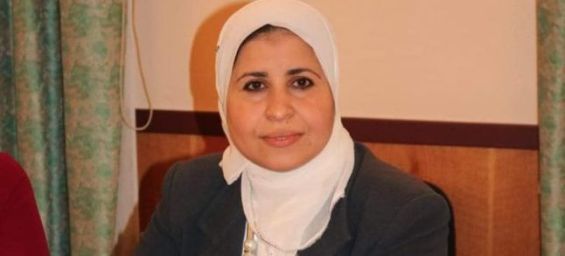Hasnaa Chihab, a Moroccan immigrant, was born in Casablanca in 1981. In 2002, she earned a diploma in general university studies and later moved to Italy on a seasonal work contract. She ultimately decided to settle in Bondeno.
However, her early days in Italy were challenging. Hasnaa faced cultural isolation and struggled with a language barrier that made it difficult to adapt. Learning Italian and understanding a new way of life became her biggest hurdles, leaving her frustrated and homesick.
Speaking to Yabiladi, Hasnaa attributed her difficulties to a lack of interaction with Italians, which was largely due to her job in a wire factory. «I worked eight hours a day and came home exhausted», she explained.
After four months, she had to leave the job because her Moroccan contract didn’t permit her to work in the factory. While this initially felt like a setback, Hasnaa came to see it as a turning point in her life in Italy.
Shortly after, she began working as a personal assistant in a nursing home, which proved to be a pivotal moment in her integration journey. The job allowed her to engage daily with elderly Italians who shared their life stories in simple Italian. This experience not only improved her language skills but also helped her gain a deeper understanding of the culture.
«For me, learning Italian wasn’t just about mastering words», she shared. «It was about understanding the culture’s spirit, which eventually made me feel like part of the society».
Advocating for migrants
Driven by her lifelong dream of earning a bachelor’s degree, Hasnaa returned to Morocco in 2014, completed her studies in economics, and then returned to Italy to continue her professional journey.
.jpg)
Her early struggles as a migrant inspired her to help others in similar situations. She wanted to show them that challenges don’t mark the end of the road but can instead become opportunities for growth. This led her to pursue further studies in Italy, focusing on migration and integration.
In 2017, Hasnaa enrolled at the University of Bondeno for a master’s degree in social services policy management and cultural mediation, specializing in social assistance. By 2020, she was working as a specialized educator in centers for unaccompanied minors, helping them navigate legal and educational challenges. «I basically became their family», she explained.
She also worked as a translator in migrant reception centers and volunteered with the Ministry of Justice as a religious guide for Muslims in Italian prisons, earning certification for the role.
In 2023, Hasnaa passed the «Specialized Social Assistance» exam and began working with government institutions as a social assistant. That same year, she joined a Ministry of Justice project aimed at supporting prisoner integration. «We help prisoners adapt, assist with legal issues, and act as a bridge between the prison and the outside world. Sometimes, they just need someone who speaks their language», she said.
Promoting a culture of inclusion
Beyond her professional work, Hasnaa is an active member of several organizations focused on integration. One of these associations, which includes psychologists and educators, offers parenting workshops and organizes cultural activities for families.
Earlier this year, the association hosted a Ramadan Iftar that brought together hundreds of Muslims and representatives from local churches to promote understanding and coexistence. «A cohesive society isn’t built on uniformity but on mutual respect and collaboration», she noted.

Hasnaa is also part of the International Academy of Moroccan Women Abroad, a network of Moroccan professionals advocating for the political inclusion of the diaspora.
Today, Hasnaa serves as the director of four refugee centers, where she oversees integration efforts spanning legal, health, and educational support while also helping refugees find employment. She firmly believes that integration is a shared responsibility, saying, «It’s not just up to migrants to integrate—it’s equally the duty of the host society».




 chargement...
chargement...












